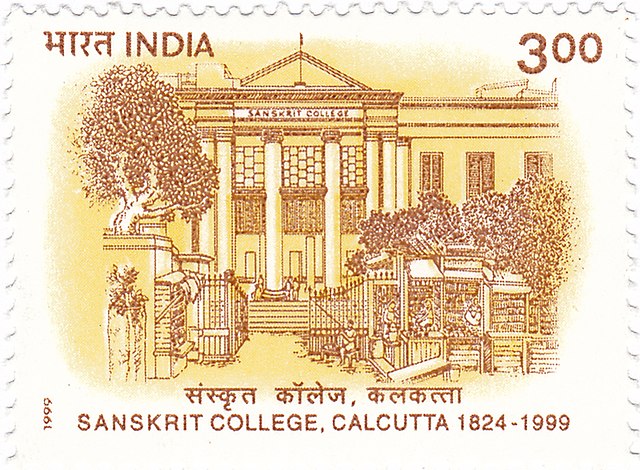Kālidāsa was a Classical Sanskrit author who is often considered ancient India's greatest poet and playwright. His plays and poetry are primarily based on Hindu Puranas and philosophy. His surviving works consist of three plays, two epic poems and two shorter poems.
A 20th-century artist's impression of Kālidāsa composing the Meghadūta
Śakuntalā stops to look back at Duṣyanta, Raja Ravi Varma (1848–1906).
Sanskrit is a classical language belonging to the Indo-Aryan branch of the Indo-European languages. It arose in South Asia after its predecessor languages had diffused there from the northwest in the late Bronze Age. Sanskrit is the sacred language of Hinduism, the language of classical Hindu philosophy, and of historical texts of Buddhism and Jainism. It was a link language in ancient and medieval South Asia, and upon transmission of Hindu and Buddhist culture to Southeast Asia, East Asia and Central Asia in the early medieval era, it became a language of religion and high culture, and of the political elites in some of these regions. As a result, Sanskrit had a lasting effect on the languages of South Asia, Southeast Asia and East Asia, especially in their formal and learned vocabularies.
Image: Bhagavad Gita 19th century Illustrated Sanskrit Chapter 1.20.21
Image: Sanskrit College 1999 stamp of India
Rigveda (padapatha) manuscript in Devanagari, early 19th century. The red horizontal and vertical lines mark low and high pitch changes for chanting.
A 17th-century birch bark manuscript of Pāṇini's grammar treatise from Kashmir






